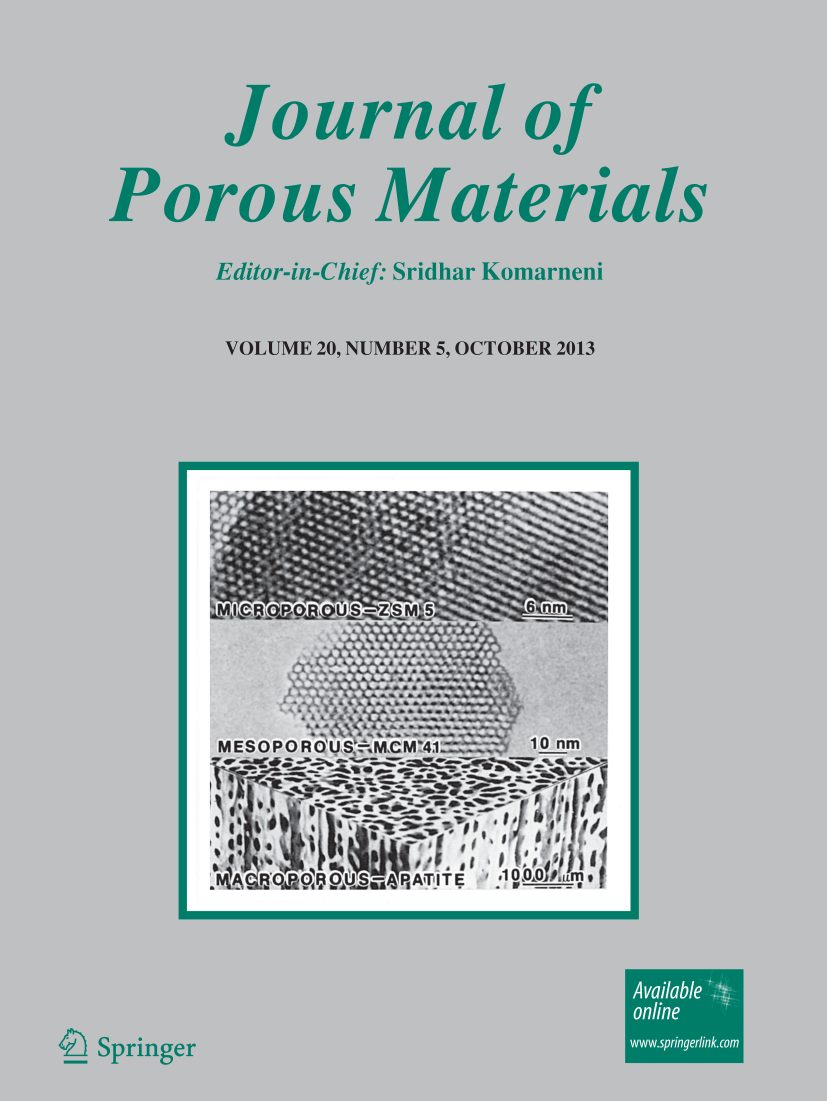A molten salt approach for synthesizing Mo2N nanoparticles embedded in N-doped mesoporous carbon as efficient hydrogen evolution electrocatalysts
IF 3.2
4区 材料科学
Q2 CHEMISTRY, APPLIED
引用次数: 0
Abstract
This study presents a facile and effective molten salt strategy to synthesize Mo2N nanoparticles embedded in N-doped mesoporous carbon using molten salts as templates. The resulting composites had high surface areas and pore volumes. Additionally, the synthesized samples exhibited excellent activity and durability for hydrogen evolution reaction across a wide pH range, with low overpotentials and small Tafel slopes. After 1000 cycles of long-term testing, the electrocatalyst achieved excellent durability. Furthermore, the low cost and simplicity of the proposed synthetic approach make it a promising method for future synthesis of similar transition metal composites.
熔盐法合成嵌入氮掺杂介孔碳的Mo2N纳米颗粒作为高效析氢电催化剂
本研究提出了一种简单有效的熔盐策略,以熔盐为模板,在掺杂氮的介孔碳中合成Mo2N纳米颗粒。所得复合材料具有较高的比表面积和孔隙体积。此外,合成的样品在较宽的pH范围内表现出良好的析氢活性和耐久性,具有低过电位和小的塔菲尔斜率。经过1000个周期的长期测试,电催化剂获得了优异的耐久性。此外,该合成方法的低成本和简单性使其成为未来合成类似过渡金属复合材料的有前途的方法。
本文章由计算机程序翻译,如有差异,请以英文原文为准。
求助全文
约1分钟内获得全文
求助全文
来源期刊

Journal of Porous Materials
工程技术-材料科学:综合
CiteScore
4.80
自引率
7.70%
发文量
203
审稿时长
2.6 months
期刊介绍:
The Journal of Porous Materials is an interdisciplinary and international periodical devoted to all types of porous materials. Its aim is the rapid publication
of high quality, peer-reviewed papers focused on the synthesis, processing, characterization and property evaluation of all porous materials. The objective is to
establish a unique journal that will serve as a principal means of communication for the growing interdisciplinary field of porous materials.
Porous materials include microporous materials with 50 nm pores.
Examples of microporous materials are natural and synthetic molecular sieves, cationic and anionic clays, pillared clays, tobermorites, pillared Zr and Ti
phosphates, spherosilicates, carbons, porous polymers, xerogels, etc. Mesoporous materials include synthetic molecular sieves, xerogels, aerogels, glasses, glass
ceramics, porous polymers, etc.; while macroporous materials include ceramics, glass ceramics, porous polymers, aerogels, cement, etc. The porous materials
can be crystalline, semicrystalline or noncrystalline, or combinations thereof. They can also be either organic, inorganic, or their composites. The overall
objective of the journal is the establishment of one main forum covering the basic and applied aspects of all porous materials.
 求助内容:
求助内容: 应助结果提醒方式:
应助结果提醒方式:


